New Zealand’s breathtaking scenery is recognized for providing the cinematic backdrop of many blockbuster films.
With a mix of serene beaches, rugged mountains and a vibrant culture, it is no wonder it has become a popular travel destination.
Whether the traveler is seeking the quaint charm of the North Island or the breathtaking dramatic views of the South Island, adventures can be found everywhere. Visitors can anticipate unexpected adventures and lasting memories on their trip if they have chosen New Zealand as their destination.
10 ITEMS YOU NEED FOR YOUR NEXT BEACH VACATION AND BEACHES YOU SHOULD VISIT
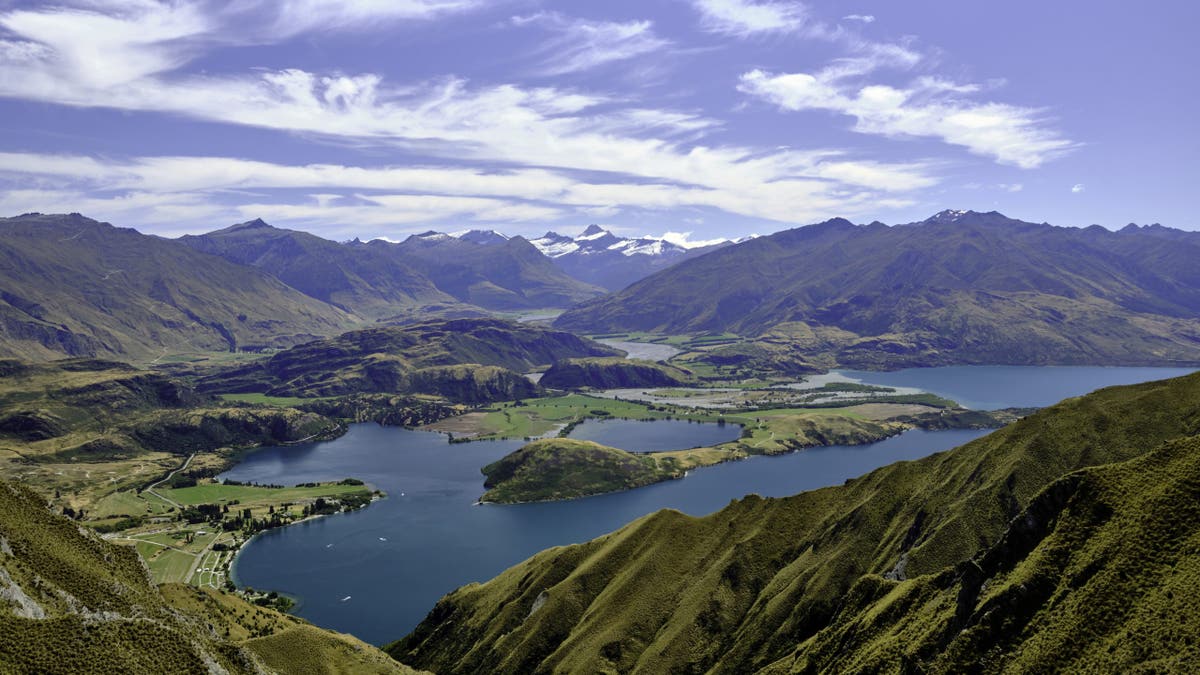
New Zealand’s lakes get their color from fine silt particles, or glacial flour, in the water. (Jorge Fernández/LightRocket)
Whether traveling to New Zealand to observe the breathtaking scenery, delve into the Māori culture or enjoy some of the best wines in the world, having a plan can help your trip be as smooth and stress-free as possible.
General New Zealand travel info
Predominant language spoken: English
Currency: New Zealand dollar (NZD) $
- Bills/notes include $5, $10, $20 and $50
- Coins come in 10c, 20c, 50c, $1 and $2
Electricity: Type 1 plugs. These include three flat pins in a triangular pattern.
Travel requirements: Unless a New Zealand or Australian citizen, a valid passport is required. A visa or New Zealand Electronic Travel Authority (NZeTA) may be required.
Geography of New Zealand
New Zealand, a favorite spot for filming movies, offers diverse scenery from majestic glaciers and rugged mountains to narrow sea inlets called fjords and sandy beaches that dot the coastline. The country is in the South Pacific Ocean and comprises two islands divided by the Cook Strait.
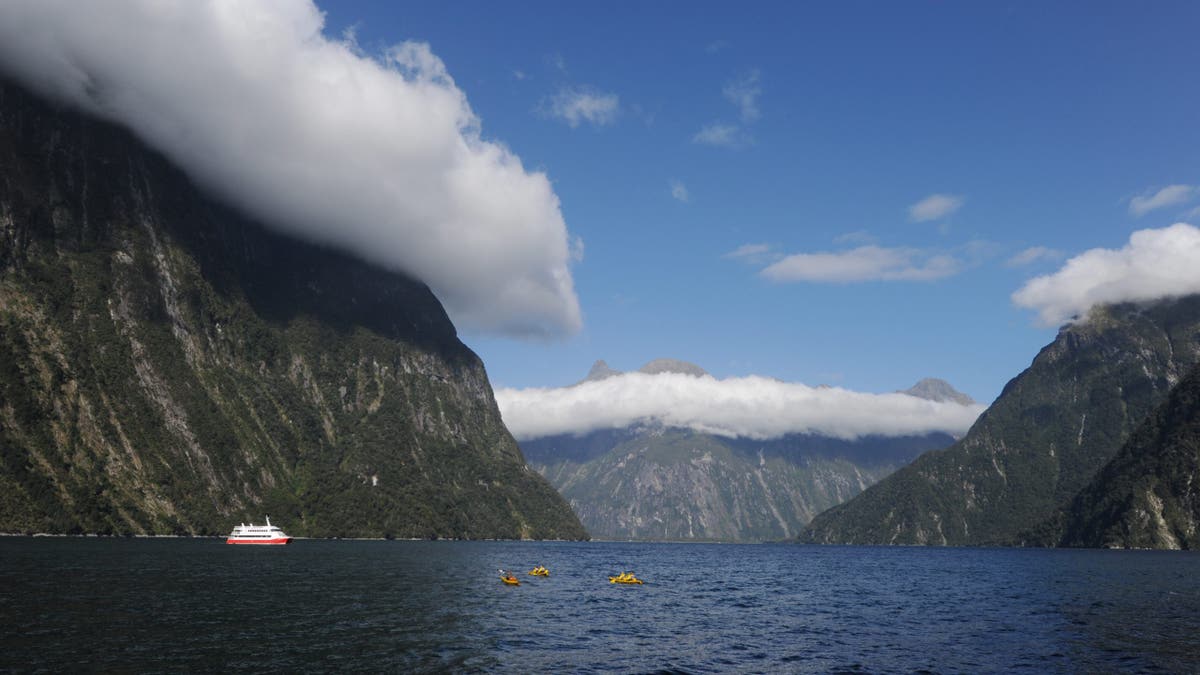
New Zealand is known for its fjords, which are long, deep and narrow bodies of water sandwiched by steep land. (Getty Images)
The North Island is the more urbanized of the two, with the country’s two biggest cities, Wellington and Auckland. It presents a pleasant view of rolling green hills and farmland. Unique features of this island include geothermal areas with geysers, bubbling mud pools, hot springs and active volcanoes.
The Lost Spring in Whitianga has 16,000-year-old geothermal mineral water and is just one of the hot spring locations on the island.
Tall mountain ranges adorn its middle with lush farmland on either side. It also has an active volcanic and thermal area in its central part.
The South Island boasts the magnificent Southern Alps. This island also offers sights of rolling farmland and flat expanses known as the Canterbury Plains.
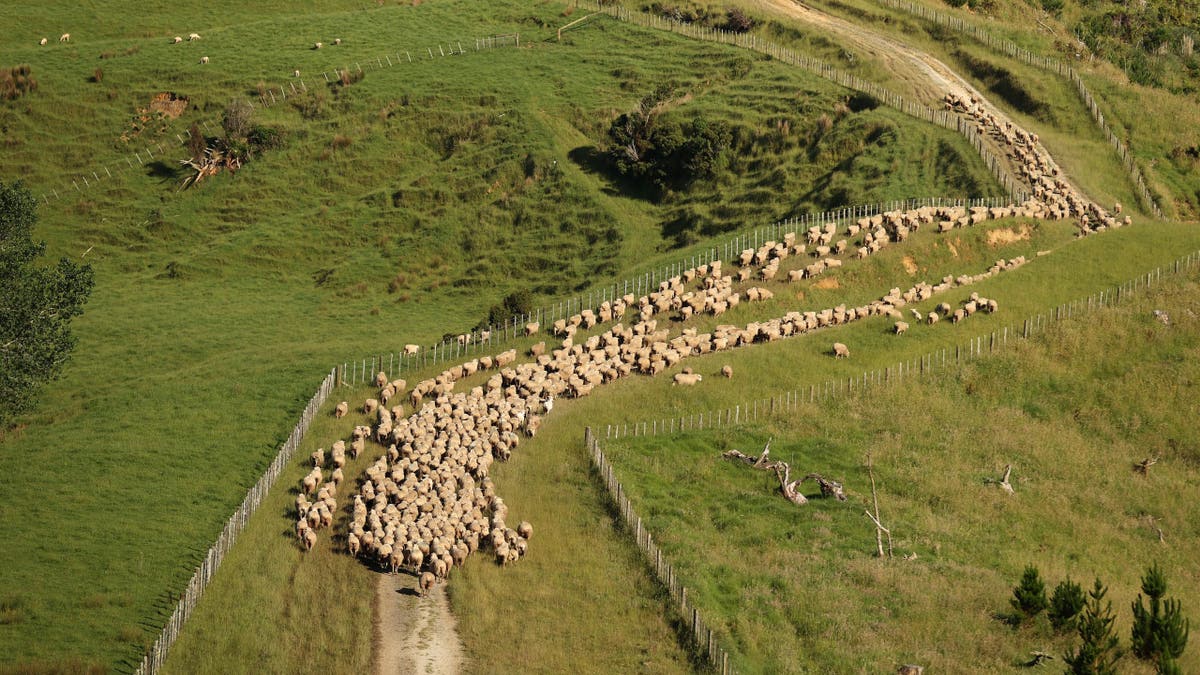
More than 38% of New Zealand was farmland in 2021, according to World Bank data. (Fiona Goodall)
New Zealand consists of a diverse coastline. The North Island features sandy beaches perfect for swimming and various water activities. The northern part of the South Island also offers charming and smooth beaches, while the rest of its coastline is more rugged and not as desirable for beach activities.
What not to do when visiting New Zealand
Venturing into a new country can be exciting, and knowing the common pitfalls can save travelers from awkward situations.
Compare New Zealand to Australia
A frequent mistake is comparing New Zealand to Australia.
Both are islands, but that’s about where the similarities end. With its enchanting natural surroundings and wide range of outdoor activities, New Zealand appeals to nature enthusiasts. Australia, though, is famous for its magnificent beaches.
Stay within your comfort zone
Venturing out of one’s comfort zone can enhance the travel experience of New Zealand visitors. From adrenaline-pumped adventures to serene nature strolls, the islands offer diverse activities that appeal to all interests.
Local food is an integral part of Kiwi culture. Embracing these unique culinary experiences may enhance a traveler’s perspective of New Zealand.
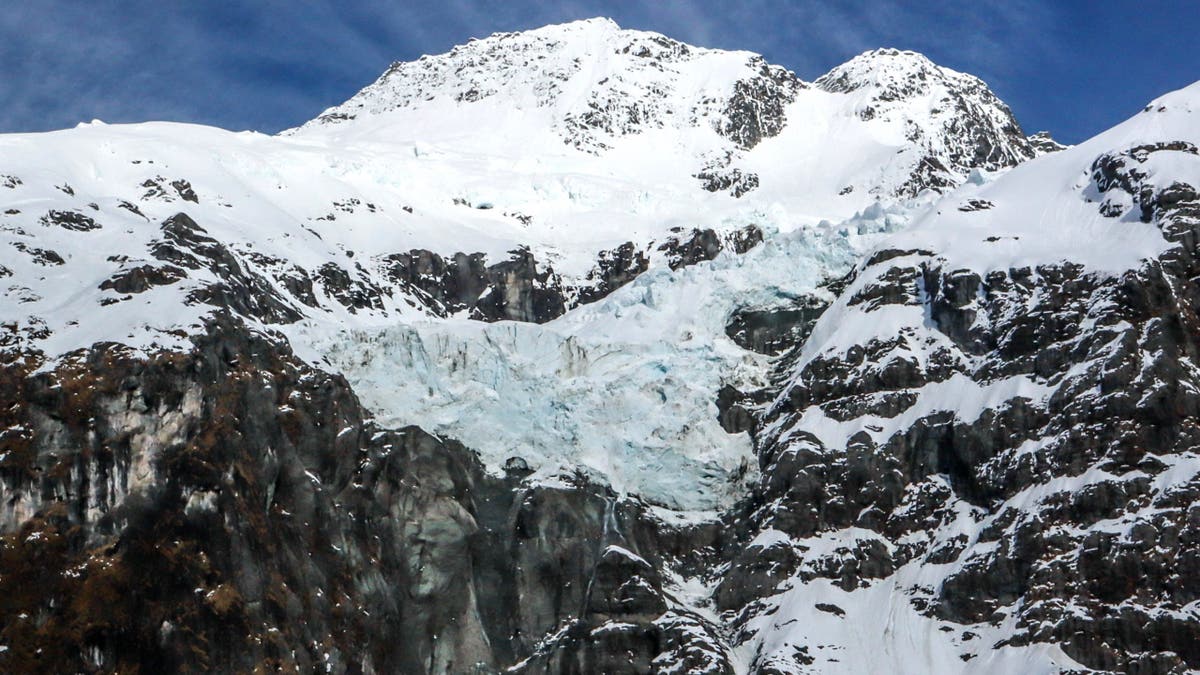
New Zealand is a popular destination for skiers between June and September. (David Gray/AFP)
Only visit the South Island
While crafting their itineraries, many travelers focus primarily on the South Island.
Most visitors start in Auckland, where the main international airport is located, and spend most of their time in the South Island. But limiting the visit to the South Island may mean missing out on the North Island’s natural grandeur, world-class restaurants and inspiring art scenes.
5 TIPS FOR FAMILY TRAVEL THAT COULD MAKE THE EXPERIENCE HAPPIER, HEALTHIER AND MUCH MORE MEMORABLE
Ignore customs of the Māori culture
Understanding and respecting local customs, such as basic phrases in the Māori language, can truly enhance the travel experience. It shows respect for the indigenous culture, creating a whole and rewarding journey.
How much does a trip to New Zealand cost?
Travelers with various budgets can have an enjoyable experience in New Zealand. However, the itinerary, food choices and accommodations booked will differ depending on how much the tourists can and are willing to spend.
A one-week trip to New Zealand for two costs around $1,924 and $962 for one person, according to budgetyourtrip.com.
Every traveler should research and create a budget for each spending item before they embark on their journey. Some items to consider include:
- Accommodations
- Transportations
- Activities, both planned and unplanned
- Restaurants
- Car rentals or other means of transportation
- Souvenirs and gifts
- Buffer for miscellaneous items
What to know about the Māori culture
Native to New Zealand are the Māori.
Their cultural heritage forms an essential part of the country’s identity. The Māori language can be heard throughout New Zealand, spoken by the indigenous Māori and many other inhabitants. Understanding a few common Māori phrases can help visitors immerse themselves in the local culture.
The marae is a communal or sacred meeting place in Māori society, including a dining area, meeting room, bathroom and other facilities.
Each marae is distinct and carries the unique identity of a specific tribe or family. Visitors who enter a marae meeting area should honor the culture, beginning with only entering after being welcomed in.
What is the best time of year to visit New Zealand?
New Zealand’s diverse landscape results in varied weather throughout the islands. With a maritime climate, it experiences all four seasons, lending itself to a host of tourist activities regardless of the timing of their visit.
The optimal time to explore New Zealand depends on tourists’ preferred experiences. Whether the trip is for outdoor adventures, relaxation, food and wine festivals or the stunning scenery, New Zealand caters to all.
December to March is the prime time to visit, especially for those seeking a laid-back holiday with relaxing beach days and moderate activities, according to Tourism New Zealand.
During these summer months, with temperatures ranging between 68˚F and 77˚F, the long, warm days are perfect for beach visits and outdoor adventures.
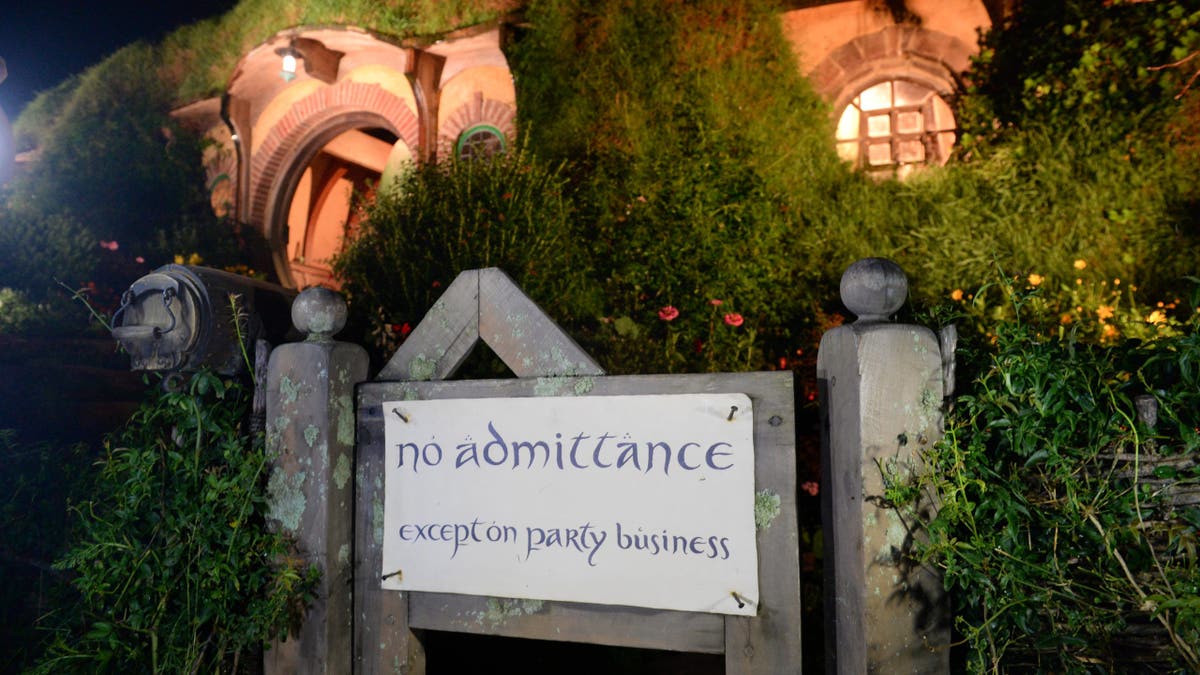
“The Lord of the Rings” or “The Hobbit” fans can take a guided tour of the Hobbiton movie set. It is located two hours south of Auckland. (Anthony Devlin/PA Images)
If vacation plans are made outside this period, the experience will be no less enjoyable. Despite the higher chance of rain, the rugged terrain and breathtaking landscapes remain a desirable attraction — just remember to pack an umbrella.
Skiers should consider a trip to the South Island between June and September. During this period, the mountains are blanketed in snow, providing ideal conditions for winter sports.
NATIONAL GEOGRAPHIC REVEALS ITS 20 ‘BEST OF THE WORLD’ ADVENTURES TO CHECK OUT IN 2024
‘The Lord of the Rings’ and ‘The Hobbit’ filming locations to see
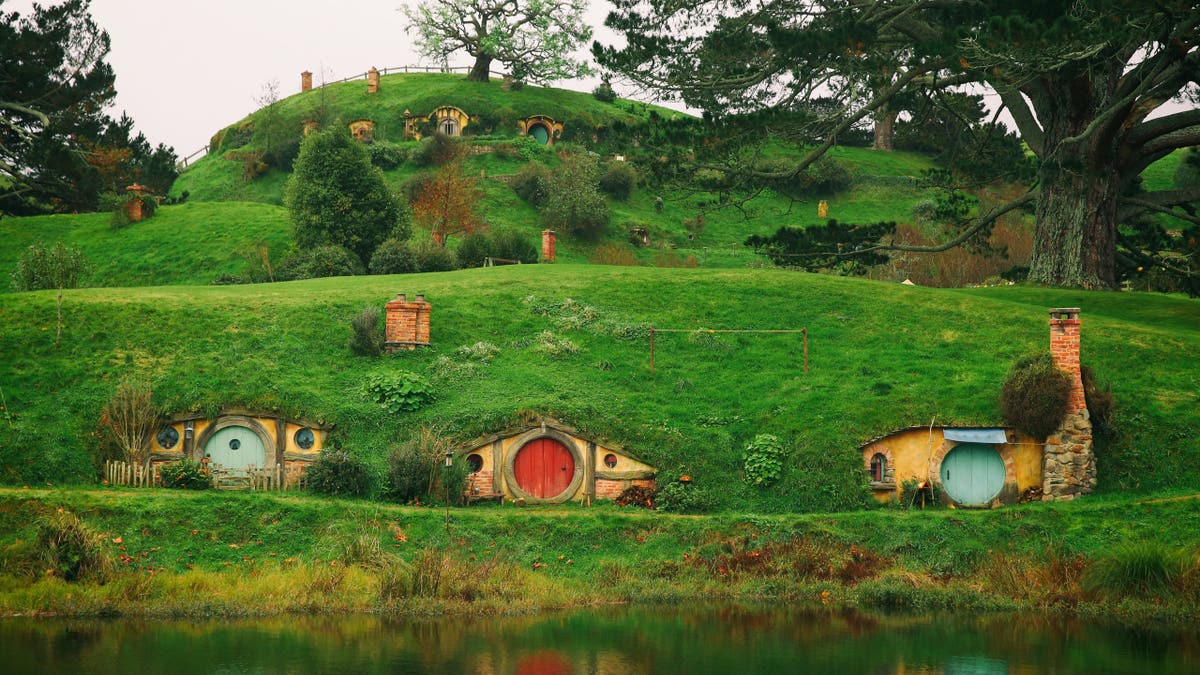
Tourists can visit the Hobbiton movie set in New Zealand. It is about a 15-minute drive from Matamata. (Alex Livesey/FIFA)
New Zealand’s mountain ranges, rushing rivers and green hills were the obvious choices for the location scout for the “The Hobbit” and “The Lord of the Rings” trilogy.
Fans can find Middle-earth™ throughout the North and South Islands as the Tolkien-based movies were entirely filmed on these islands.
Here are some must-see locations for fans of “The Hobbit” trilogy:
CLICK HERE TO GET THE FOX NEWS APP
- The Shire region of Middle‑earth™ — The village of Hobbiton was created on farmland in Matamata and is now a permanent attraction.
- The Forbidden Pool — Tawhai Falls Track in Tongariro National Park was the film set for the scene in “The Two Towers” in which Frodo and Faramir capture Gollum.
- Gardens of Isengard, Rivendell and other locations — Wellington, the capital of New Zealand, is the location of several scenes in the trilogy. Mount Victoria is an accessible location that depicts Hobbiton Woods. Kaitoke Regional Park became Rivendell, where the quest to destroy the One Ring began.